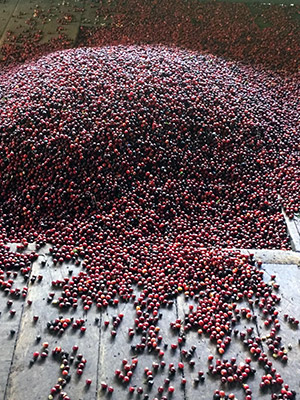The world-famous Kenyan Arabica coffee grows on the high plateaus surrounding snow-capped Mount Kenya, 80 miles north of Nairobi.

The coffee is sourced from family-owned farms organized around the Othaya Farmer’s Cooperative Society Limited, an organization of 19 small coffee factories in Nyeri County. Derived from the Maasai word nyiro, meaning red, the region is named for its rich volcanic soil. The cooperative was registered in 1956 with 250 farmers and has since grown to more than 15,000 members.
Michael Chung, an associate professor of global health at the University of Washington School of Public Health and associate professor at the UW School of Medicine, works with the cooperative to provide cervical cancer screening to female coffee growers.
“Our foray into the health of coffee farmers melds the desire by American coffee companies to do good for the farmers that provide so much business for them and our desire to make a difference in these rural communities,” Chung says. “It’s important for us to think outside the box in order to ensure our efforts actually improve lives and decrease morbidity and mortality.”

In 2015, Chung and a team from Atlas Coffee Importers in Seattle developed a community health program that screens women on coffee farms for cancer and provides treatment as needed. Operating costs are donated by Atlas and other roasters that purchase the cooperatives’ coffee beans.
“We try to directly connect the coffee bought by Atlas with health interventions that we can provide to the farmers,” Chung says. “We want to make a personal connection and investment in the community.”
About 125 million people worldwide depend on coffee for their livelihoods, according to the United Nations Development Program. Coffee is one of the world’s most popular beverages and 80 percent of it is produced by small family-owned farms, primarily in developing countries, that struggle with poverty, food insecurity and access to healthcare.
“Many coffee farmers from around the world live in resource-limited settings under challenging health conditions,” Chung says. “It’s helpful for us to learn more about where the food we value so much comes from and how we can help those who help us stay awake every day."
(By Ashlie Chandler)
